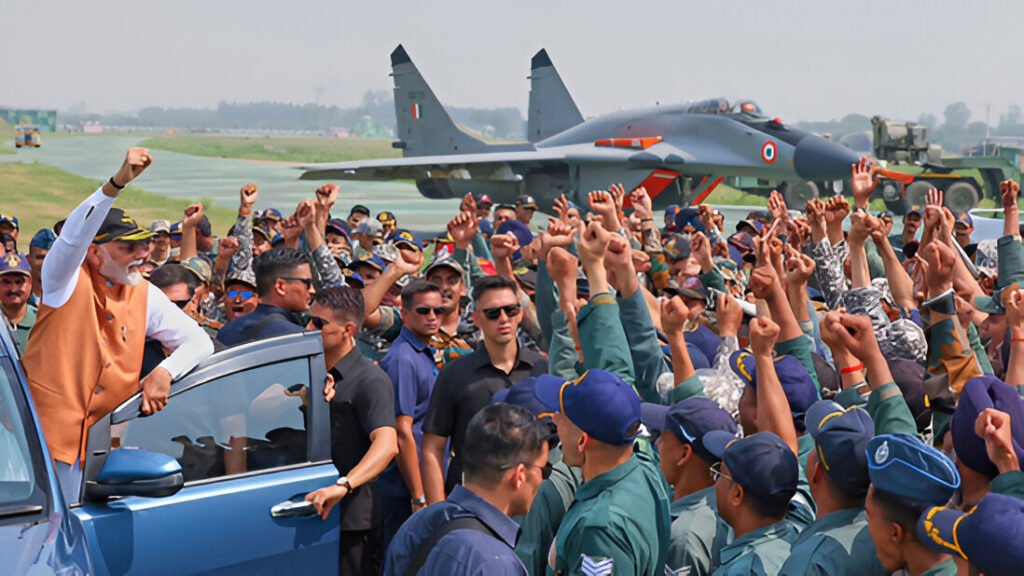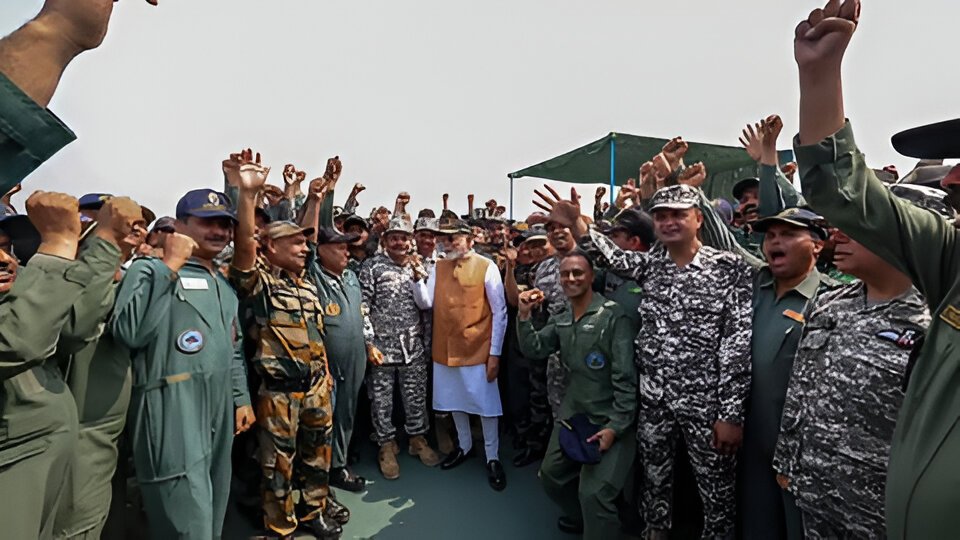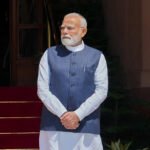
The visit of Prime Minister Narendra Modi to the Adampur Air Base in Punjab on May 13, 2025, served as a landmark event in the complex dynamics of terrorism in India. While addressing the air warriors and jawans, PM Modi gave a stern warning on the matter that India’s responses to terror threats will always be aggressive, striking forward and proactive with the now memorable phrase, ‘Ghar me ghus ke marenge’ (We will go into their homes and kill them). This analysis will explain the consequences of his comments, the context of Operation Sindoor, and the Indian defense and national security policies.
Operation Sindoor: Reconceptualisation of Counterterrorism
PM Modi’s speech came days after the achievement of Operandi Sindoor, defined as a collection of targeted attacks on the infrastructure of terrorism beyond the borders following the Pahalgam attack on April 22. The operation, which destroyed more than 100 terrorists and a number of camps in Pakistan and Pakistan-Occupied Kashmir, showcased India’s growing ability to execute aligned strikes from different warfare divisions simultaneously—dubbed multi-domain warfare—all while protecting non-combatant lives. Modi termed the operation Sindoor a military campaign but also called it the ‘confluence of India’s policy, intent, and decision-making capacity.’
Bolstering National Pride and Morale
Modi, along with the Indian Air Force personnel, basked in the militant’s bravado as their area of operations rejoiced over his virtue-filled presence. While he stood and applauded the indomitable spirit of the IAF, he remarked, ‘They keep the calm of the nation.’ The base was alive and buzzing as fervents roared, ‘Bharat Mata ki Jai, Vande Mataram,’ during Modi’s speech. He further added that every mission undertaken severely shakes up the enemy’s confidence, proving their willingness to fight as an indomitable will that propels the nation forward.
Stern Word to Aggressors: Terrorism Will Not Be Tolerated!
Modi, without naming any country, said that ‘not only were the terror camps obliterated, but Pakistan also met new limits of ‘dishonor that exceeded its pride’s collapse.’ India reserves the right to strike wherever danger emanates at the core and states, “We will go to their house and kill the terrorists. You have no chance to even think of escape.” According to him, it is a policy framed by India subsequent to Operation Sindoor, highlighting anticipatory counter-violence as opposed to reactive post-combat counter-violence.

Disinformation and Nuclear Blackmail Economic Warfare
The trip by PM Modi helped mitigate the impact of Pakistan’s assertions claiming they had shot down an Indian S-400 air defense system at Adampur during their counterattack. Claiming photographs of himself next to the S-400 system, Modi, along with the Indian defense officials, brushed off these accusations as misinformation, reinforcing the Indian narrative of military might and technological superiority. He also issued a warning against nuclear blackmail, saying, “India will not tolerate any sort of nuclear blackmail,” addressing with precision the threat narratives employed by opponents to stop Indian actions.
Strategic Military Readiness with High-Level Preparedness Review
In New Delhi, a commensurate visit from the PM brought about a chair security review meeting featuring Defense Minister Rajnath Singh, which addressed the India-China border situation and requisite escalation response frameworks geostrategically in light of the recent tensions. Remarks by PM Modi at Adampur focused on the need to defend the notion that the government aims to advance an aggressive defense posture while ensuring that the Indian armed forces are procured, poised, and motivated to confront any challenge.
Wider Effects on the Defense Policy of India
The prime minister’s ‘ ghar me ghuske maarenge’ policy has been an unprecedented change concerning the approach adopted by India in dealing with terrorism and external violence. With the adoption of this policy, the government has unilaterally declared the policy of preemptive and counterattacks, which serves both to try and deter future attacks as well as to display strength internationally. The address at Adampur was an operational and psychological morale booster not only for the armed forces but also an indication to the world that India will defend its territory and people unflinchingly.











